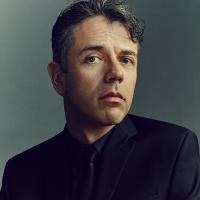WKAdam Rogers

Articles editor, Wired
Adam Rogers top-edits the print magazine’s front-of-book sections — "Alpha," "Ultra," "Q," and "Gadget Lab." He also edits feature stories, primarily on science but also on geek pop culture, and is the edit lead for WIRED’s video programming. Rogers’ feature "The Angels’ Share," a detective story about a mysterious fungus that lives on whiskey fumes, won the 2011 AAAS Kavli Science Journalism Award for magazine writing. Rogers was a writer and correspondent for WIRED Science, which aired on PBS in 2007. Prior to joining WIRED, Rogers was a Knight Science Journalism Fellow at the Massachusetts Institute of Technology, and before that he was a writer and reporter at Newsweek. Rogers is the author of the New York Times best seller Proof: The Science of Booze.
Pitch Guidelines
Wired covers technology, science, and business...but also space, gardening, sports, fashion, outdoor adventure, indoor adventure, sex, war, and politics. In every case, our stories are specifically about how technology and science are changing those other beats. We're looking for upwellings of the future, stories and narratives that sound like science fiction except they're true. You can tell those stories as narrative tales from the front lines of something, as profiles of people trying to make some difficult goal come true, as looks behind the curtain of the familiar. The tricky bit: They have to be stories, not topics. Answers, not questions. A pitch suggesting that you'd like to know what's really going on with the patent war over CRISPR genome editing will not fly. I'd like to know that, too. A pitch that says you're going to tell the story of that patent war through the eyes of the people fighting it? Yup. A pitch about how awful deforestation in the Amazon is? Nope. A pitch about the people who are implementing the one good idea for how to fight it? Maybe yes. We're especially looking for stories where the main characters reflect the diversity of the world of science and adventure---race, gender, ideas.
The really tricky bit: the section of the story where you explain why it's a Wired story. You have to explain to an assigning editor (and to a reader) what makes this one ours--probably in a way that other magazines don't. Engineers trying to save the world, scientists redefining humanity's place in nature, places in the world that are secret testbeds for other planets...what aspect of the future does the story you want to tell shine a light on? Whatever you want to pitch has to be real. It has to exist as more than a render. The rocket engine has to ignite; the genetically modified organism has to have a pulse. But even then, what does it mean? That's the key to the pitch.
You can pitch any section, from the front of the book--Alpha stories ranging from 250 words to about 1,000 for a well-argued essay--to the feature well. (Features run anywhere from 2,500 words to 8,000.)
Speaking:
-
Saturday, October 10th, 3:15 pm to 4:30 pm




